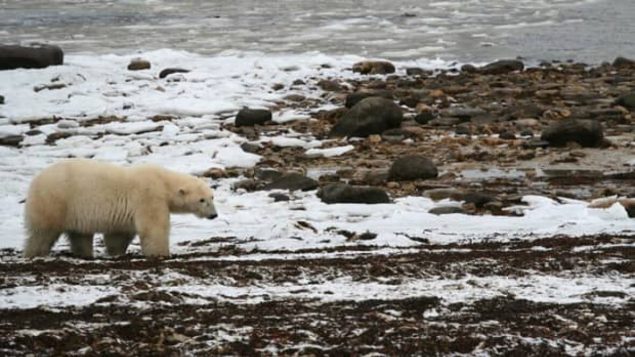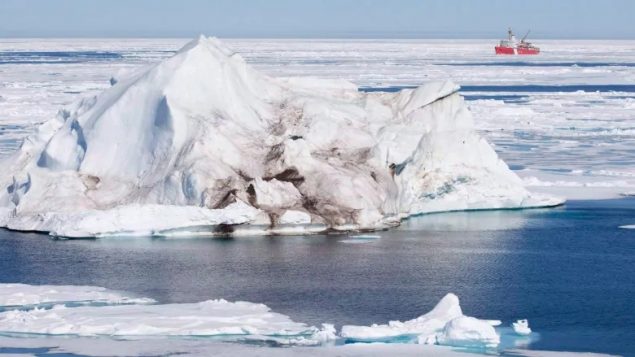The U.S. National Oceanic and Atmospheric Administration (NOAA) has released its annual Arctic Report Card.
“Arctic ecosystems and communities are increasingly at risk due to continued warming and declining sea ice,” says the report, compiled by 133 scientists from 15 countries, including Canada.
“The Arctic marine ecosystem and the communities that depend upon it continue to experience unprecedented changes as a result of warming air temperatures, declining sea ice, and warming waters.”

A polar bear wanders along Hudson Bay. (iStock)
“Changes in the Arctic climate are important because the Arctic acts as a refrigerator for the rest of the world — it helps cool the planet,” Lawrence Mudryk, a report contributor and a climate scientist at Environment and Climate Change Canada, told The Associated Press news agency.
“How much of the Arctic continues to be covered by snow and sea ice reflects part of how efficiently that refrigerator is working,” he said.
Among the report’s findings:
- The past year was the second warmest on record in the region since at least 1900 and the extent of snow on the ground in June across the Eurasian Arctic was the lowest recorded in 54 years and record warm temperatures in the Eurasian Arctic were associated with extreme conditions in the ocean and on the land.
- During July and August 2020, regional ocean primary productivity in the Laptev Sea was ~2 times higher for July and ~6 times higher for August compared to their respective monthly averages.
- From September 2019 to August 2020, the Greenland Ice Sheet experienced higher ice loss than the 1981-2010 average but substantially lower than the record 2018/19 loss.
- Shifts in air temperatures, storminess, sea ice and ocean conditions have combined to increase coastal permafrost erosion rates, in regions where a high proportion of Arctic residents live and industrial, commercial, tourist and military activities are expanding.
“The Arctic isn’t just this collection of components, it’s really an integrated system,” Don Perovich, a professor at Dartmouth College in New Hampshire who contributed to the report, told the AP.
“When something happens to one part of the system, it has cascading effects,” he said.
“As sea ice thins, more light can penetrate into the ocean, with unclear impacts for ecosystems,” he said.
A study released last month showed the warming is having a profound effect on wildlife in the Arctic.
As well, studies show that it is one of the fastest-warming places on the planet, but scientists are still not in agreement ahout why--though many believe the warming is the result of the burning of fossil fuels.
The first Arctic Report Card was released in 2006
This year’s report can be read here.
With files from The Associated Press, CBC News, RCI







For reasons beyond our control, and for an undetermined period of time, our comment section is now closed. However, our social networks remain open to your contributions.